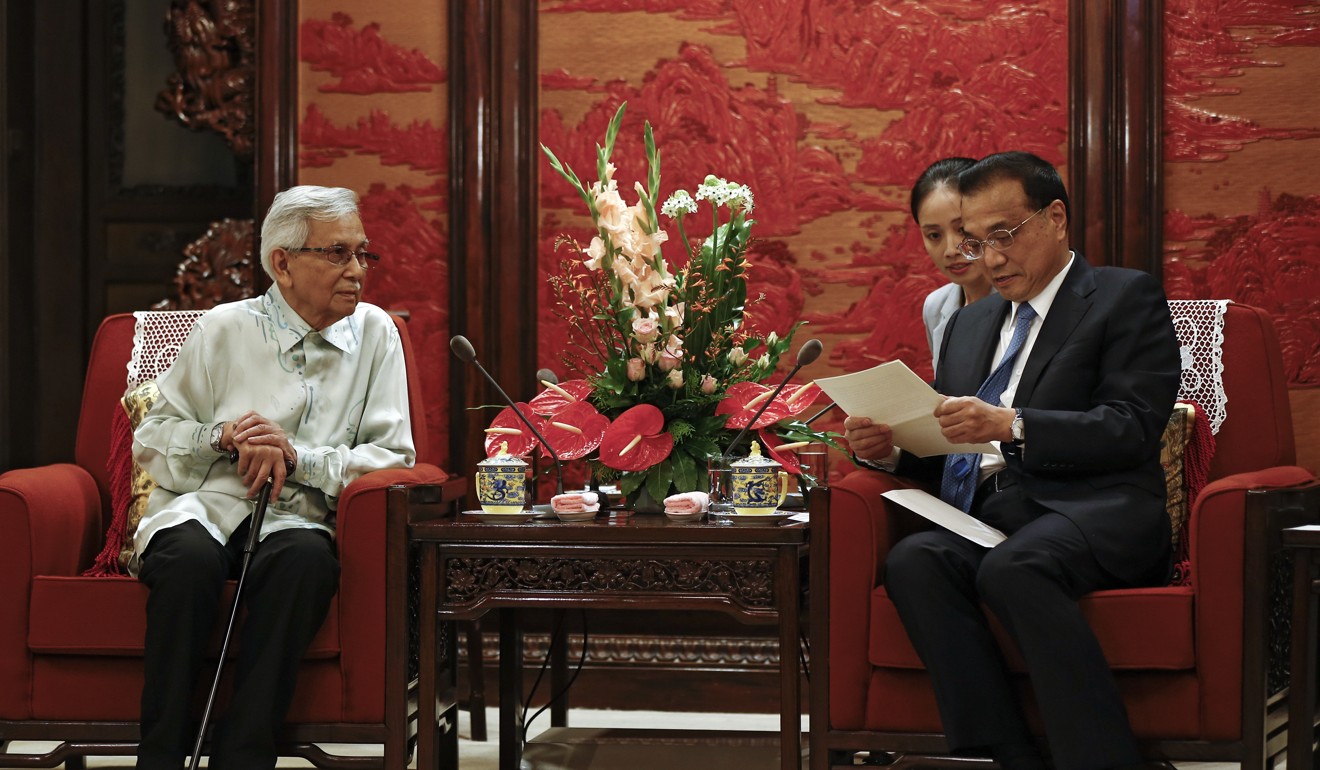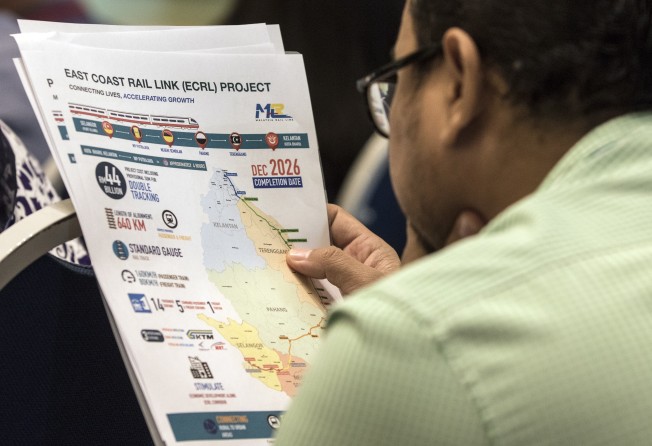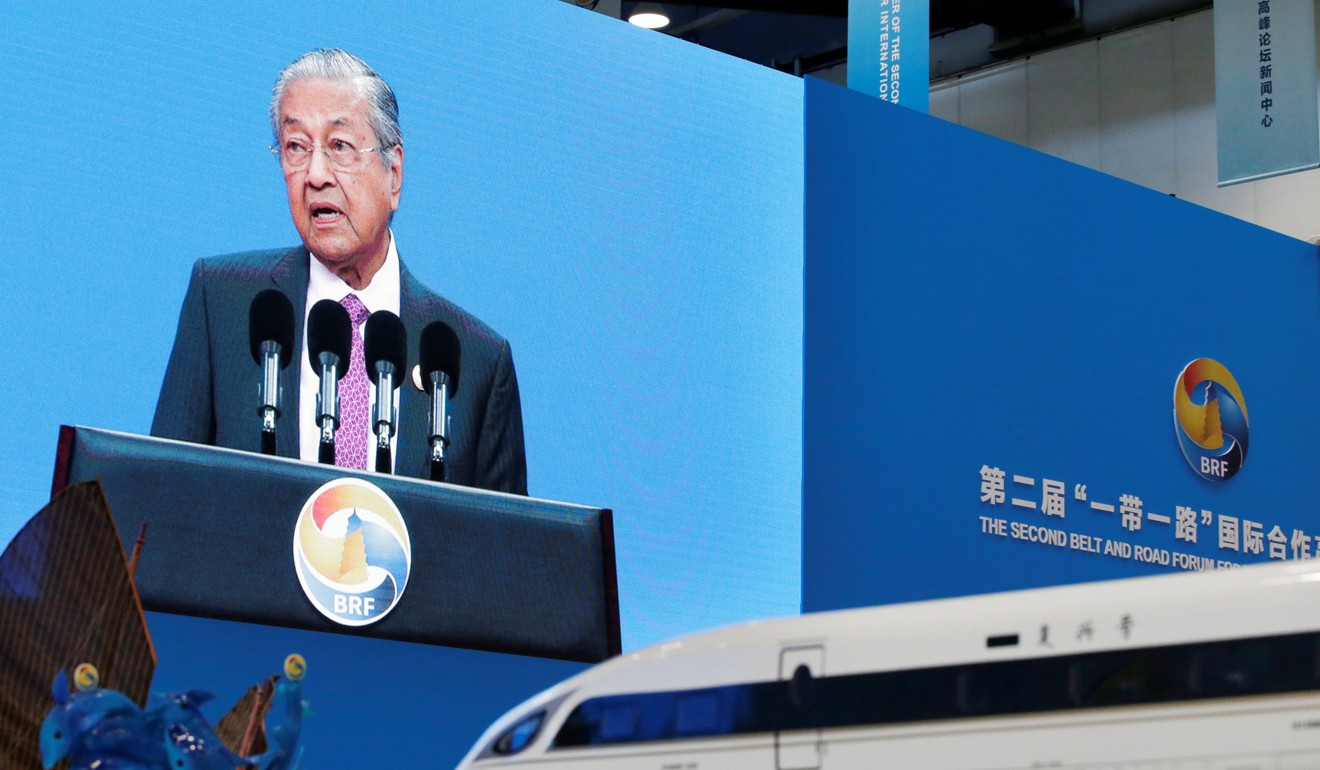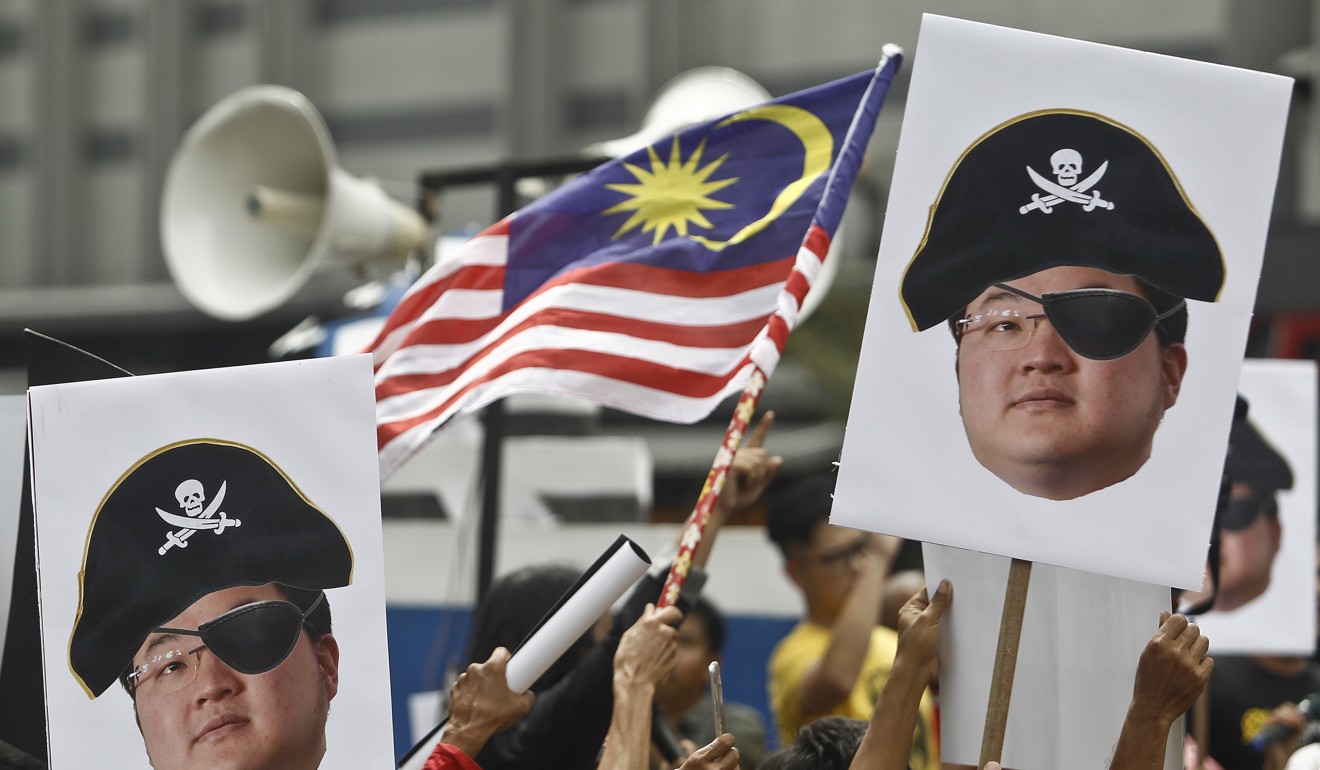
Top Mahathir adviser Daim says Malaysia’s China-backed ECRL will be loss-making for some time, reveals surprising offer from fugitive financier Jho Low
- Former finance minister thinks the rail link will take years to make a profit, and says Low contacted him in bid to help negotiate with China
- This is the second piece in our series on Daim. Later today, he discusses Malaysia’s dispute over Singapore’s agreement to purchase water from its neighbour

Malaysia’s China-backed East Coast Rail Link (ECRL) is likely to be loss-making for a considerable period after its completion in 2026, according to the government adviser who led lengthy negotiations with Beijing over the project.
In an interview with the South China Morning Post, Daim Zainuddin said the development – viewed by China as a key pillar of its Belt and Road Initiative – was no different from other public infrastructure projects that had “long gestation periods”.
And despite hopes in the China-wary West that Malaysia’s Prime Minister Mahathir Mohamad would cancel the project and deal a blow to the Beijing-led infrastructure-building initiative, Malaysia decided to give the rail link the green light because of its legal obligations to uphold the original deal, Daim said.
The former finance minister was tasked by Mahathir last July to renegotiate the terms of an agreement between his predecessor Najib Razak’s government and the rail link’s main contractor, China Communication Construction Company (CCCC).

The 93-year-old premier had contended that the original price of 65.5 billion ringgit (US$15.8 billion) was too high, and suggested that Najib had offered the Chinese firm a sweetheart deal as a quid pro quo to Beijing for the help rendered by other Chinese state firms in bailing out the troubled 1MDB state fund.
Najib, defeated in last May’s general election, is facing 42 criminal charges for his alleged links to the plundered fund.
Following nine months of negotiations helmed by Daim, 81, the Mahathir government last month announced that CCCC had agreed to cut the price of the project by nearly a third, to 44 billion ringgit (US$10.6 billion).
Still, Daim said he continued to believe the project would be “loss-making, at least for some years to come” – a position he took during a previous interview with the Post last year, soon after he began negotiations.
Apart from the price reduction, which arose partly out of a realignment of the railway, Daim said one crucial difference in the enhanced agreement he negotiated was the provision for CCCC to share the costs of management, maintenance, and operation of the project.
Malaysia and CCCC will split costs evenly, while Kuala Lumpur will take 80 per cent of any profit.
CCCC has also signed a memorandum of understanding to bring in investment and develop industrial parks along the railway, which links the port of Klang to peninsular Malaysia’s rural east coast.
“This initiative by CCCC is welcome and a good indication that the Chinese want to see the ECRL work and are willing to put their words into action,” Daim said.
Critics of the rail link have questioned why Daim had agreed to the new terms instead of scrapping the project altogether, citing passenger load and cargo forecasts that they say clearly point to the rail link staying in the red for a long time.
Those who criticise [the ECRL], put it in writing and send it to the government. Come out in the open
Daim, who held the position of special envoy to Mahathir for the purpose of negotiations – which were at the government-to-government level during the final stages – said he found such assertions absurd.
The new government had little choice but to comply with the “legally binding” contract Najib had signed in 2016.
“Those who criticise, put it in writing and send it to the government. Come out in the open,” he said. “Don’t criticise. Some people say, why don’t you walk away from the agreement. You don’t have to pay one cent. Do they know the agreement or not?”
He added: “There is a binding agreement … it may be one sided, but it is equally binding [on Malaysia]. You can’t blame the Chinese. If you are silly enough to sign the agreement, then it’s your problem.”

Asked what China was anxious about during the negotiations, Daim said: “I mean this is [a belt and road project]. If you break it, it will make international news. And America, a few other countries are watching. They will cheer us, but the damage will not be for them. So we have to be careful.”
Daim said the revised deal did not come with any strings attached – some had contended that the two countries might have arrived at the lowered cost for the ECRL as part of a quid pro quo plan.
However, he said he used the talks to informally raise to Beijing some items on Malaysia’s wish list: increased tourism arrivals from China and additional purchases of Malaysian palm oil.
China is the world’s third-largest buyer of Malaysian palm oil. The commodity’s price has been routed in recent months as a result of bearish sentiment amid the ongoing United States-China trade war.
“We said, look, you are far better, much richer than other countries. Why don’t you buy more?” he said. “But these are not part of the [ECRL] deal.”

In the hour-long interview, Daim revealed one previously unheard anecdote about the ECRL negotiations: fugitive financier Jho Low, pinpointed by US and Malaysian prosecutors as the central figure in the 1MDB scandal, got in touch with him during the discussions with an offer to help.
Low is believed to be based in China. He is a fugitive from his home country, Malaysia, and neighbouring Singapore, where police have issued arrest warrants for him over his links to the multibillion-dollar corruption scandal.
The businessman has said he will not return to face charges in Malaysia because he has no faith in the judicial system under a Mahathir government.
“The last time [Low] got in touch with me was during the ECRL [negotiations]. I mean, I refused, I said, ‘Look, no need’.” Asked what Low had offered, Daim said: “He said he can help … so I said, ‘Why don’t you come back here? Come and brief me here’.”
Pressed for more details about Low and his current circumstances in China, the top adviser to Mahathir turned coy, and refused to divulge more. “This [Jho Low] is more complex than the ECRL.”
Low’s spokesperson said in a statement to This Week in Asia that “Mr Low has never had any contact with Mr Daim and any assertion to the contrary is untrue and categorically denied.”